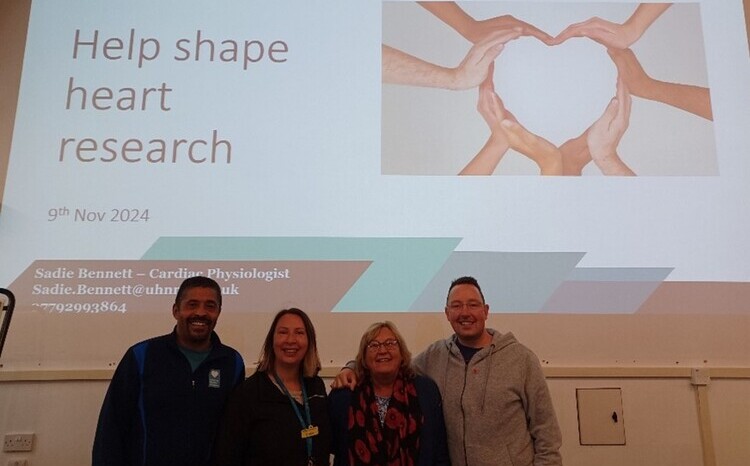Industry news in brief
- 30 August 2019

This month’s industry round-up features news that Southmead Hospital has installed Fujifilm’s endoscopy imaging system to speed up diagnoses, meanwhile the British Heart Foundation has kick-started a £1 million innovation fund to improve the way heart failure is treated in the UK.
Southmead Hospital installs Fujifilm endoscopy imaging system
Bristol’s Southmead Hospital has installed Fujifilm’s endoscopy imagining system using funding from two charities.
Dr Zeino Zeino, an endoscopy specialist at the hospital, has used the equipment to set up a new endoscopic ultrasound (EUS) service to provide more accurate diagnoses.
Developed by Fujifilm and installed by leading medical product specialist Aquilant, the three ultrasound endoscopes provide clinicians with advanced diagnostic and therapeutic capability.
“Before we started the new EUS service, patients had to wait a long time for this procedure. Now we’re able to offer an accessible endoscopic ultrasound service, reduce waiting times, and work with our colleagues at other hospitals to ease their workload,” Dr Zeino said.
“The service also reduces the need for other invasive procedures, and the advanced imaging capability that EUS provides, allows us to make a more accurate and a quicker diagnosis.
“One of our first patients to be treated with the new equipment had been admitted to hospital twice before and had a pacemaker fitted which meant she couldn’t have an MRI scan. With EUS, we were able to determine that she had a stone in her bile duct and made sure she was able to quickly get the right treatment.”
Allocate Software partners with Patchwork Health
Allocate Software and Patchwork Health have announced a partnership to make their two systems interoperable, to ease staffing pressures.
Patchwork’s specialist temporary staffing technology will integrate with Allocate’s HealthMedics rostering solution, helping healthcare providers staff their wards more effectively while reducing agency spend.
Combined Patchwork and Allocate customers can access connected workforce management systems for doctors, automate a wide range of recruitment and staffing tasks, remove double data entry, and safeguard the quality of shift bookings.
Nick Wilson, chief executive at Allocate Software, said: “By partnering with Patchwork, we are addressing the appetite of healthcare organisations looking for choice and we look forward to the exciting results we will achieve together.
“Allocate Connect proactively supports calls for greater interoperability – critical to safeguarding the safety and efficiency of the healthcare sector – by creating an ecosystem of innovative technology partners that celebrate close supportable interfaces as we do.”
Anas Nader, chief executive at Patchwork, added: “By connecting NHS organisations directly with a growing pool of healthcare workers, we’re reducing the reliance on locum agencies and helping organisations achieve three key objectives – save money, free up time and improve patient safety.”
Upon introducing Patchwork Health’s software to Chelsea & Westminster, the Trust saw a 500% increase in the size of their staff bank and were able to fill 90% of vacant shifts with their own staff. This saving in agency spend and through increased efficiency meant the trust saved £1.2 million in the first year with Patchwork.
British Heart Foundation launches £1 million innovation fund
The British Heart Foundation (BHF) has launched a £1 million innovation fund to transform the way heart failure services are delivered in the UK.
The Hope for Hearts Fund seeks to test and evaluate innovative approaches to delivering better heart failure care and services.
The charity is challenging the nation’s healthcare pioneers to think how innovation could radically improve heart failure care. This might include more effective use of technology and data, new service models or new ways of engaging patients in their own care.
Jacob West, director of healthcare innovation at the BHF, said: “The country is facing a heart failure crisis. Patients with heart failure often have a poor quality of life. In severe cases life expectancy is worse than for many cancers.
“Numbers of patients with heart failure are rising rapidly, and this has a significant impact on hospitals and other care services. We want the Hope for Hearts Fund to inspire the country’s innovators to tackle these issues head on.
“This is not about maintaining the status quo. We want to encourage practical new ideas that can help patients with heart failure to live better, longer lives.”
NHS medical director Professor Stephen Powis added: “The Hope for Hearts Fund is a great opportunity for health professionals to promote innovation and inspire the spread of the very best new ideas to tackle and treat heart failure on behalf of patients.
“Tackling heart disease is a priority in the Long Term Plan, with an ambition to ensure that many more patients with heart failure are diagnosed earlier and get better care and treatment to save thousands more lives over the next decade.”
Applications close on 12pm on 28 November, 2019.
Neuropore Therapies partners with BenevolentAI
Neuropore Therapies has partnered with BenevolentAI to to evaluate molecular targets implicated in progressive degenerative diseases through the use of artificial intelligence.
Errol De Souza, president and chief executive of Neuropore, said: “The application of artificial intelligence to the elaboration of novel approaches to medicine is one of the leading edges of science and is an approach that is bound to lead to new discoveries.
“Neuropore’s Autophagy Platform is a perfect testing ground for new hypotheses and discoveries. In addition to its drug discovery capabilities, Neuropore’s development and translational experience in degenerative disease makes it a great fit for both companies.”
Anne Phelan, senior vice president at BenevolentAI, added: “The collaboration between Neuropore and BenevolentAI offers a fantastic opportunity to accelerate the discovery of new medicines.
“Neuropore have built a world-leading platform for experimentally evaluating key processes within protein homeostasis, a critical biological mechanism in neurodegenerative diseases such as ALS. This system will allow the rapid and thorough evaluation of multiple novel targets, discovered using the BenevolentAI Platform, and enable us to validate new targets faster than ever.”





